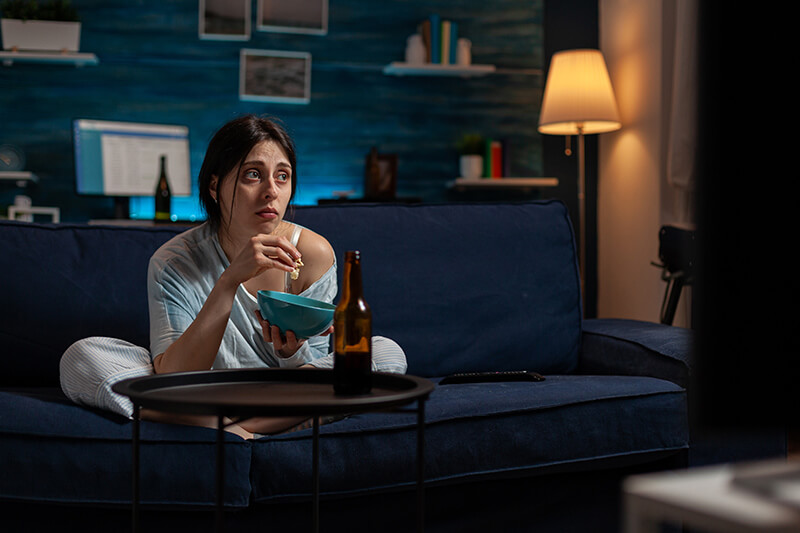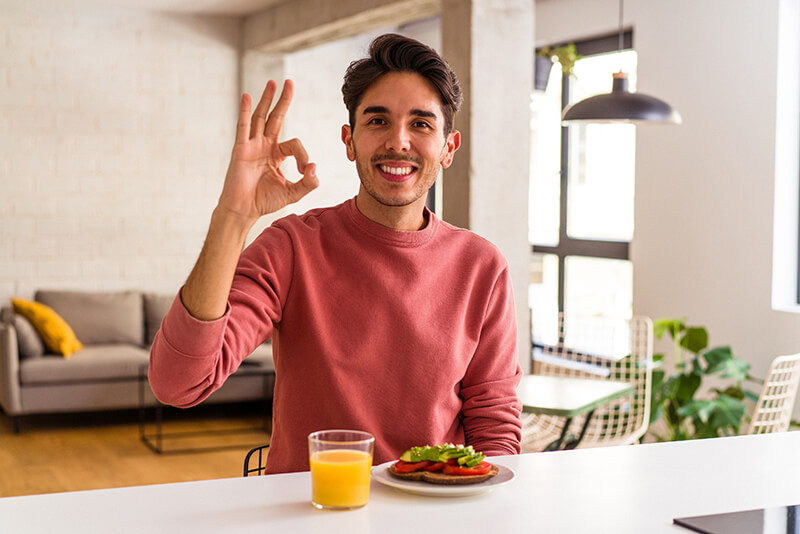If you are uncomfortable with your drinking habits, a depressed mood may be playing a role in the situation. Drinking can contribute to depression, and likewise, depression can trigger a desire to drink. This creates a cycle where mood and alcohol get connected.
When Drinking Becomes a Mood Strategy
When alcohol is used in an unhealthy way, it is sometimes because a person is trying to manage a negative mood or emotion. A person might decide to have a drink in this situation to boost their mood. They may do this out of habit, because they don’t have healthier coping tools, or because in the past, alcohol has made them feel less down, at least temporarily. By repeatedly reaching for a drink during times of low mood, the brain eventually forms a neural pathway. This pathway leads to the thought that when feeling down, a drink is the answer. A depressed mood then triggers a craving for alcohol. Alcohol comes to seem like the best and only solution.


The Brain’s Chemistry and the Craving Loop
Usually, neurochemicals in our brain help regulate our mood and keep it stable. One of these neurochemicals, which are sometimes known as the “feel-good” chemicals, is dopamine. When you drink in excess and the brain is flooded with alcohol, this can slow down the body’s production of dopamine. The body decides that less dopamine is needed because alcohol is temporarily providing that feel-good sensation. The neurochemistry of the brain becomes deregulated. Eventually, the brain comes to depend on the influx of alcohol rather than dopamine to feel OK. In this new low-dopamine situation, when you feel down, this triggers the brain to crave more alcohol.
Shifting Patterns and Restoring Balance
You can reduce your drinking and improve your emotional health. The process involves gently shifting your unconscious patterns. First, it helps to decide why you want to make this change and be honest about the impact of alcohol on your mood and the impact of your mood on your drinking. Start to notice your mood and how it relates to your drinking.
When you are feeling down and start to crave a drink, substitute a healthier behavior or habit. Try exercise, yoga, meditation, or whatever makes you feel better. You might ask yourself, what activity does your mind or body need in that moment? The movement practices, journaling prompts, and hypnotherapy on the Unconscious Moderation app are great options.
Eventually, you will be creating new, healthy neural pathways in your brain associated with these behaviors instead of drinking. This will shift your unconscious thought patterns away from drinking.

Depending on how severe your depressed mood is, you might also want to look into psychotherapy or medication. Talk to your primary care doctor if you’re not sure. And if your depression ever worsens and you have thoughts of harming yourself and a plan to do that, call 911, a crisis hotline, or go to the nearest ER.
Cutting back on drinking can be a great step in improving your emotional health and growing your inner resources.



